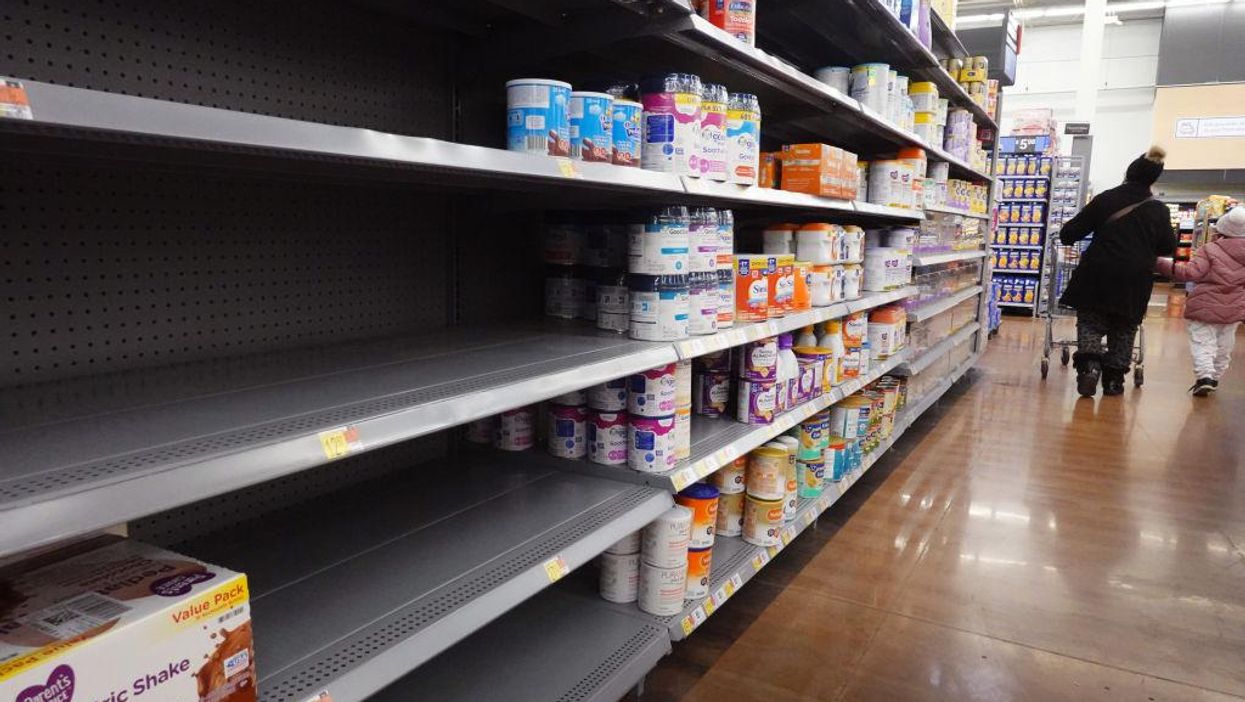
Scott Olson/Getty Images

There is a national shortage of baby formula, which has forced a large retail chain to impose rationing on the important product for infants.
The supply chain crisis has prompted Walgreens – the second-largest pharmacy store chain in the United States behind CVS – to limit the amount of baby formula that customers can purchase. A spokesperson for the national drugstore chain told CBS MoneyWatch that customers may only buy three infant and toddler formula products per transaction. Walgreens – which operates approximately 9,021 drugstores in all 50 states – said the reason for rationing is because of "increased demand and various supplier issues." The restrictions are already in effect at stores.
CVS is also experiencing baby formula shortages. A CVC Health spokesperson told CBS News that "product supply challenges are currently impacting most of the retail industry." The largest pharmacy store chain said it is working with "national brand baby formula vendors to address this issue and we regret any inconvenience that our customers may be experiencing."
As of the week of March 13, an analysis by Datasembly found that 29% of the top-selling baby formula products were out of stock at more than 11,000 stores. A steep increase from 11% in November.
Datasembly noted that 30% of baby formula was out of stock as of mid-March in 24 U.S. states. Shortages of at least 40% were reported in Connecticut, Hawaii, Iowa, Louisiana, Maryland, North and South Dakota, Rhode Island, and Texas. Parents in Minnesota are struggling to secure baby formula since stores are seeing 54% shortages, according to the retail analysis company that provides real-time product information from thousands of stores. In the first seven months of 2021, there were shortages of baby formula between 2% and 8%.
"This is a shocking number that you don't see for other categories," said Ben Reich – CEO of Datasembly. "We've been tracking it over time and it's going up dramatically. We see this category is being affected by economic conditions more dramatically than others."
A shortage of baby formula is concerning since 75% of babies receive at least some formula by the age of 6 months.
Memphis mom Samantha Modely told WREG-TV, "I would normally buy four to six cans at times to get us through the month and I would have to limit that to two. My friend is about to have a baby in August, and I can't imagine being worried about whether you’d be able to go to the local grocery store and grab what you needed it."
San Francisco mother Irene Anhoeck told CBS News, "We've noticed it being difficult to find maybe a couple months ago — two, three months ago — and then just recently we can't find it. We've tried all the local Targets. We checked Costco, Costco online, Walgreens, Long's. Can't find it anywhere."
Enfamil – a leading baby formula brand – said in January that they were dealing with an unprecedented 18% surge in demand for baby formula.
"We have taken steps to ramp up production and are currently shipping 50% more product, to address issues as fast as possible," a spokesperson for Reckitt – maker of Enfamil – said in January.
The Infant Nutrition Council of America assured parents that manufacturers are increasing production to counter the lack of product. The organization also urged parents not to hoard baby formula, and to only keep a supply for 10-to-14 days.